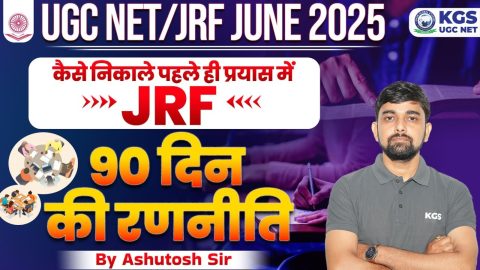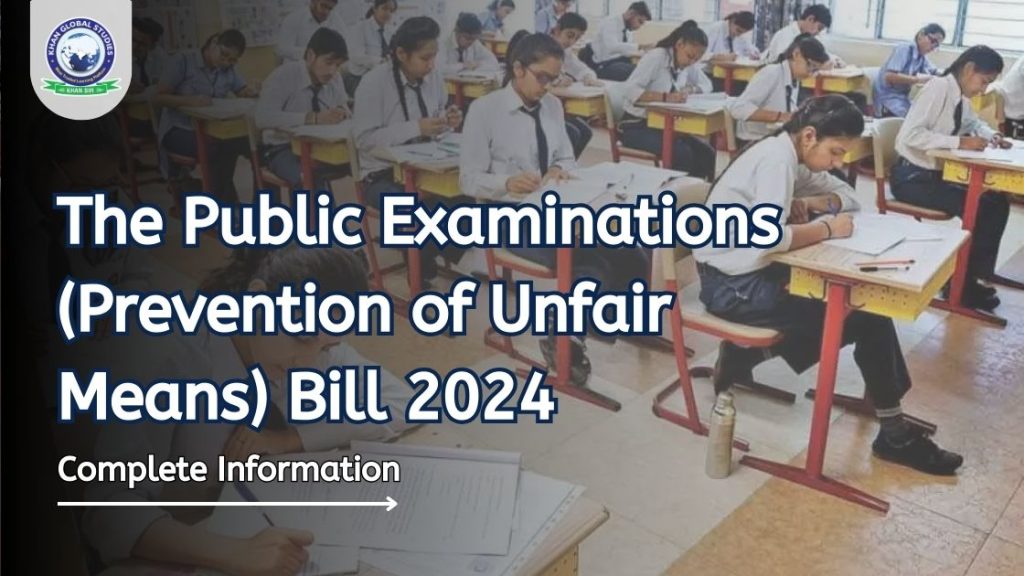The Central Government has taken a tough decision to prevent irregularities in government recruitment and other competitive examinations. On 5th Feb 2024, Union Minister Jitendra Singh introduced the related bill ‘Public Examinations (Prevention of Unfair Means) Bill, 2024’ in the Lok Sabha. There is a provision that if someone makes irregularities in the examination, he will have to pay 10 years of imprisonment and a fine of Rs 1 crore. After this decision, many students were confused about cheating. Jitendra Singh clarified the situation on 6 February 2024 and said that students and competitors will not be included in the proposed law to stop cheating in examinations.
Offenses related to the Public Examinations
The Bill defines some offences with public examinations. It prohibits collusion or conspiracy to promote enjoyment in any improper manner. It specifies unfair means which include:
- Unauthorized access or leak of question paper or answer key,
- To assist the candidate during the public examination,
- Tampering with computer networks or resources,
- Tampering with documents for shortlisting or finalizing the merit list or rank, and
- Conducting fake examinations, issuing fake admit cards or fraudulently issuing offer letters for financial gain. It also prohibits (i) premature disclosure of confidential information related to the examination, and (ii) disrupting by allowing unauthorized people to enter the examination centres. The above offenses will attract imprisonment of three to five years and a fine of up to Rs 10 lakh.
Responsibilities of Service Providers
In case of violation of the provisions of the Bill, the service providers will have to report to the police and the concerned investigating authority. The service provider is an organization that provides computer resources or any other support to the public examination authority. Not reporting such incidents would be a crime. If the service provider himself commits any crime then the investigating officer will have to inform the police. The Bill prohibits service providers from shifting the examination center without the permission of the examination authority. The law will impose a fine of up to Rs 1 crore on the service provider committing the offence. The service provider will also be responsible for covering the proportionate cost of the investigation. The law will also bar them from conducting public examinations for four years.
If a service provider commits a crime with the consent or connivance of a director, senior management or person in charge, the law will hold these persons personally liable. He will be sentenced to three to 10 years imprisonment and a fine of Rs 1 crore.
Organized Crime
The Bill specifies higher punishment for organized crimes. The law defines an organized crime as an unlawful act that a person or group of persons commits in furtherance of a common interest for wrongful gain relating to public examinations. The law will punish the said persons with a jail term of five to 10 years and a fine of at least Rs 1 crore. If the law finds an organization guilty of committing an organized crime, it will seize its assets and charge proportionate investigation costs.
Relief to Students and those appearing for Competitive Exams
Union Minister Jitendra Singh said during the discussion on ‘Public Examinations (Prevention of Unfair Means) Bill 2024’ in the Lok Sabha on 6th Feb 2024 that students and competitors will not be within the scope of the proposed law to prevent cheating in examinations. Union Minister of State for Personnel Jitendra Singh said that we have not kept students or candidates under the ambit of this law.
If you are involved in a paper leak then you will get full punishment
The Union Minister Jitendra Singh said those involved in any exam-related irregularities will now face stringent punishment, including a maximum imprisonment of 10 years and a fine of up to Rs 1 crore. If the law finds the exam conducting institute or agency involved in exam-related irregularities, including paper leaks and cheating, it will recover the full cost of that exam from them. The law can also confiscate their property.




